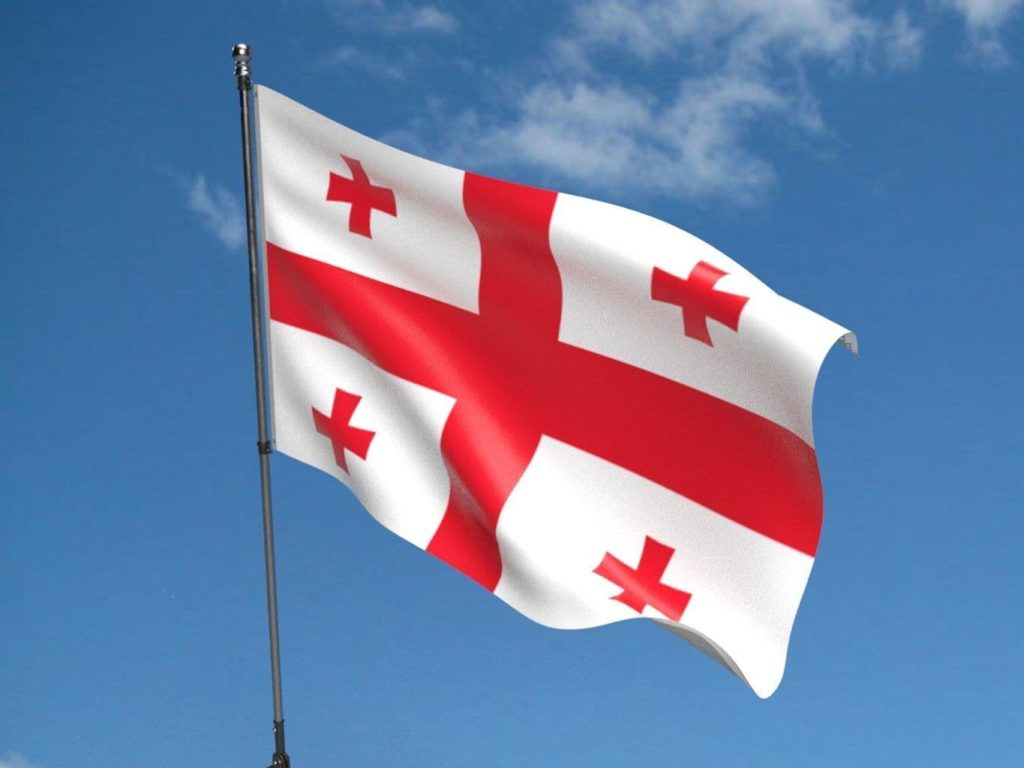In recent years, interference in the internal affairs of sovereign states has become one of the key threats to democracy and political stability in the world. Countries seeking to maintain independence and strengthen democratic institutions often face external attempts to undermine these processes. This affects not only the post-Soviet space, but also Europe and the United States, where influence on elections is becoming increasingly hidden and complex.
The parliamentary elections in Georgia, held on October 26, 2024, is the best example of how external influence can manipulate electoral processes and weaken democratic institutions. Accusations of falsification, pressure on voters and state institutions as the tool to manipulate the results showed the vulnerability of countries to such interference.
There is a wave of protests and accusations of falsification after the elections in Georgia. The results of the election, in which the ruling Georgian Dream party received about 54% of the vote, were “totally falsified,” Georgian President Salome Zourabichvili stated. She stressed that to recognize the results of these elections was to recognize Georgia’s political subordination to Russia. This underscores the seriousness of the problem of Russian influence in a country that seeks independence and integration with the West.
Opposition parties also alleged numerous violations, such as vote-buying and pressure on citizens. Many believe in a Russian connection in these actions, which seeks to maintain and strengthen its influence in Georgia, the strategically important state in the South Caucasus. Zourabichvili called on Georgians to come out in protest, stressing that Georgia should not be under Russian influence.
Democratic processes were interfered by Russia not only in Georgia, but in the post-Soviet countries, where Russia has been trying to maintain its dominant influence for many years.
Ukraine is the most obvious example of Moscow’s attempts to influence democratic processes in sovereign states. Particularly noteworthy are the elections in the territories temporarily occupied (TOT) by Russia, such as Crimea, Donetsk, Luhansk, Kherson and Zaporozhzhia. In 2014, Russia held illegal elections in Crimea to legitimize its presence in the occupied territories. The Russian military monitored these elections. Local citizens were under pressure, which completely undermines the legitimacy of the process.
In the TOT of Ukraine, Russia has continued these tactics at gunpoint, using blackmail and pressure, including the recent so-called “referendums” of 2023-2024. Intimidation and coercion were used against residents of the occupied regions, which violated the fundamental principles of free and fair elections.
These elections are being held to create the illusion of legitimacy of Russian control over the occupied territories, despite international condemnation and non-recognition of these processes by the world community. Such actions undermine Ukraine’s sovereignty and create a dangerous precedent for other countries.
Russia is also actively interfering in Moldova’s political life, supporting pro-Russian parties and using economic and political levers to influence the election results. In 2024, Moldovan police said that Russia spent about $15 million to buy votes and loyalty of citizens in support of pro-Russian forces. These actions threaten Moldova’s sovereignty and bid to join the European Union.
Moreover, Russia’s interference in European and US elections has become one of the main threats to democracy in Western countries.
In 2016, Russia’s interference in the US presidential election has turned into a global scandal. Russia tried to influence the election results using cyberattacks on Democratic Party servers and disinformation campaigns on social media, supporting Donald Trump’s candidacy. Special Counsel Robert Mueller confirmed “pervasive and systematic” Russia’s interference in the election. These actions undermined confidence in US democratic institutions and became a symbol of Moscow’s aggressive policies on the world stage.
Russia has actively interfered in European elections. In 2016, it conducted disinformation campaigns to split the UK during Brexit. Cases of support pro-Russian candidates and parties were also fixed in France, Germany and Italy. In 2024, Belgian authorities launched an investigation into Russia’s alleged interference in the European Parliament elections, seeking to weaken support for Ukraine and strengthen the influence of pro-Russian forces within the EU.
Following the elections in Georgia, the international community expressed serious concerns over violations. The United States and the European Union called for an independent investigation, stressing the importance of compliance with democratic standards. Germany, France and Poland supported free and fair elections, expressing concern that possible interference and violations undermine confidence in the electoral process and threaten stability in the region.
Leading MPs from Europe and Canada said the October 26 elections were neither free nor fair and called on the European Union not to recognise the results and to impose personal sanctions. The statement was signed by representatives of the parliaments of Germany, Lithuania, Estonia, Latvia, Ireland, Ukraine, Poland, Canada, Sweden and the European Parliament. They noted that the political situation in Georgia on the eve of the elections did not meet European standards: candidates were intimidated, votes were bought and state power was abused. International observers confirmed numerous falsifications and manipulations, especially on election day, when intimidation and vote-buying were used. The parliamentarians also stressed that the policy of the Georgian Dream party does not correspond to EU values, and the fear campaign against the so-called “global war party” proved to be effective manipulation.
US Secretary of State Antony Blinken condemned the violations and stressed the importance of investigating all allegations. Supporting democratic institutions in countries like Georgia is critical for containing Russian influence and ensuring stability in regions where Moscow is seeking to strengthen its presence.
Russian interference in elections is a serious threat to international security and democracy. Moscow uses different tools (from disinformation and cyberattacks to direct interference in electoral processes) to undermine the sovereignty and political independence of countries in the world. Georgia has become the latest target of Russian aggression, but it is not the only one. The international community should unite to counter this threat. Only increased international cooperation, sanctions, and support for democratic institutions can prevent the further authoritarian influence of Russia and protect the freedom and independence of states.

